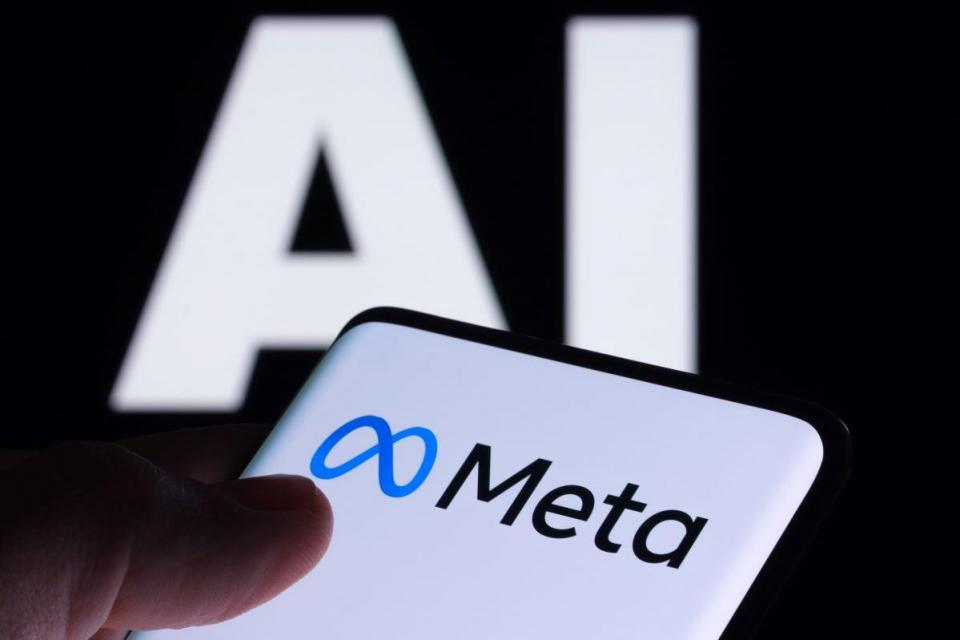Table of Contents
In a bold move to compete in the AI space, Meta has announced the launch of a new AI model that can generate video content complete with sound, marking a significant leap in AI-driven content creation. This new technology sets the stage for Meta to challenge OpenAI, which has already made strides in text and image generation.
Meta’s New AI Model: Video and Sound Together
Meta’s AI model goes beyond existing capabilities in the generative AI space by not only creating high-quality videos but also generating accompanying sound that aligns with the visual content. This AI is capable of synthesizing both the video and the audio tracks, creating a more immersive and seamless experience.
Key Features of Meta’s AI Model:
- Video Generation: The model can generate dynamic video clips from scratch based on text prompts or context provided by the user.
- Sound Integration: Unlike existing models that focus purely on visuals, Meta’s new AI automatically generates sound effects, music, or dialogue to accompany the video, bringing a new level of realism to AI-generated content.
- Enhanced Customization: Users can fine-tune the output to match specific requirements, allowing for more tailored and precise video creation.
This new model is designed to accelerate creative workflows by automating the production of content for media, entertainment, and marketing.
Meta vs. OpenAI: A New Chapter in the AI Race
Meta’s latest development marks a new phase in its ongoing competition with OpenAI, which has focused on generative models like GPT-4 for text and DALL-E for images. While OpenAI has led in areas like natural language processing (NLP) and image generation, Meta is attempting to leap ahead in video, a more complex domain.
OpenAI’s Strengths:
- GPT-4: A leading language model capable of generating human-like text and engaging in complex conversations.
- Source: OpenAI’s GPT-4 Overview
- DALL-E: An image generation model that creates high-quality images from textual descriptions.
- Source: OpenAI’s DALL-E
Meta’s New Play:
Meta’s ability to integrate both video and sound generation could give it a competitive edge in fields like video production, gaming, virtual reality, and other multimedia-driven industries. The company is reportedly focusing on making the tool accessible for creators and businesses, offering them a way to quickly produce content at scale without the need for complex video production teams.
Potential Applications of Meta’s AI Video Model
This innovation opens up several possibilities for industries across the board:
- Content Creation for Social Media: Influencers and marketers can create high-quality videos with sound effects and music in a fraction of the time.
- Entertainment and Film: Filmmakers and animators could use the AI to generate entire scenes, reducing post-production time and cost.
- Virtual Reality and Gaming: Game developers could use the model to create immersive environments with realistic soundscapes, making experiences more lifelike.
- Education and Training: Educational platforms could generate custom videos for online courses or training programs, complete with narration or sound effects.
Challenges and Ethical Concerns
While Meta’s AI model opens up new opportunities, it also raises several ethical questions:
- Content Authenticity: As AI-generated video and sound become more sophisticated, distinguishing between real and synthetic content may become increasingly difficult. This could fuel concerns about misinformation, deepfakes, and the misuse of AI-generated media.
- Intellectual Property: There are ongoing debates about how to protect the rights of artists and creators when AI is capable of generating content that may resemble or infringe on existing work.
Meta has stated that it is aware of these concerns and is working on safeguards to prevent misuse of its AI technology, including watermarking generated content and ensuring transparency in how videos are produced.
Conclusion
Meta’s announcement of an AI model that can generate both video and sound is a groundbreaking advancement in the generative AI landscape. As it competes with OpenAI and other leading tech companies, Meta is positioning itself at the forefront of the next wave of AI-driven content creation. While challenges lie ahead, particularly regarding ethics and content authenticity, the potential applications are vast and transformative across many industries.
For more updates on Meta’s AI innovations, follow @cerebrixorg on social media!
Dr. Maya Jensen
Tech Visionary and Industry Storyteller
Read also
November 19, 2024
November 19, 2024
November 19, 2024

